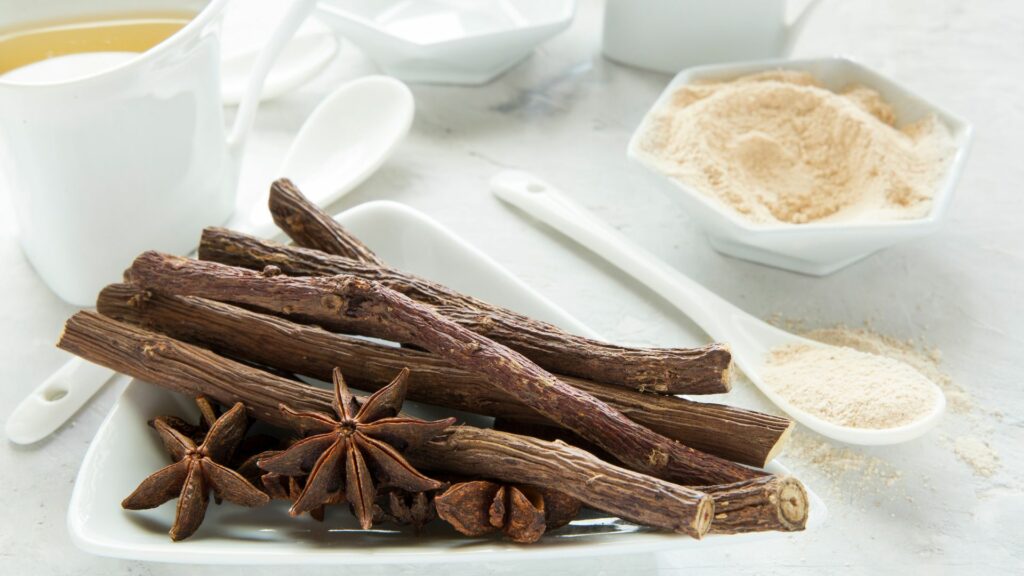Licorice Root for HSV
Table of Contents
What is Licorice Root?
Licorice root, also known by its latin name as Glycyrrhiza glabra, is a very popular medicinal herb traditionally used globally for centuries for a variety of conditions:
- Soothe gastrointestinal irritation
- Support the body’s response to stress and help with recovery from burnout
- Cough
- Anti-inflammatory
- Immune modulation
- Infections
Its breadth of actions and effectiveness have made it an invaluable tool in traditional herbal medicine, and is extensively researched. The most important active ingredient in licorice root is called glycyrrhizin, or glycyrrhizic acid. Studies have shown that much of its medicinal properties are due to this compound. Since one of the common side effects of glycyrrhizin is slightly increased blood pressure, many combinations that don’t rely on it as the active ingredient will have a de-glycyrrhizinated version, or DGL, such as in formulas to help with stomach irritation. Licorice is also a very important herb in Traditional Chinese Medicine, where it is often included in herbal formulation as a ‘driver’ to complement the other herbs and help deliver them to the right Channels in the body. One of the many uses for Licorice root has been for infections, such as H. pylori and the Herpes Simplex virus (HSV) which causes cold sores and herpes.

How does Licorice help with HSV?
The compounds in licorice root have been shown in laboratory studies to prevent the virus from adhering to healthy cells, thereby preventing the virus from infecting them. It also appears to be able to directly inactivate the virus as well.
Moreover, what makes this herb a potentially great choice for HSV, is its ability to stimulate and modulate the immune system. It is anti-inflammatory and immune-modulating, which means it will help the different immune cells to mature and function properly, so they spend less time causing unwanted inflammation, and more time keeping invaders like HSV at bay.
Those who are suffering from cold sore or herpes outbreaks may also benefit from its adaptogenic properties. An adaptogen is a substance that helps the body cope with stress by shifting the nervous system away from the Fight of Flight mode, and into a calmer state. Chronic stress can cause more frequent and more severe cold sore and herpes outbreaks, so managing stress is an important consideration, where adaptogens like Licorice can be of use.
Safety
Generally, Licorice root is not considered hazardous and has been used medicinally for centuries all over the world. There are a few things to know however, because some adverse effects are possible, most often seen with very high and prolonged doses. Those who have high blood pressure should not take licorice root, or at least consider the DGL version. Same goes for anyone who suffers from electrolyte imbalances such as hypokalemia, is taking thiazide diuretics, cardiac glycosides, and/or has heart or kidney conditions. As always, speak to a qualified healthcare practitioner before starting any new treatments.
Share: